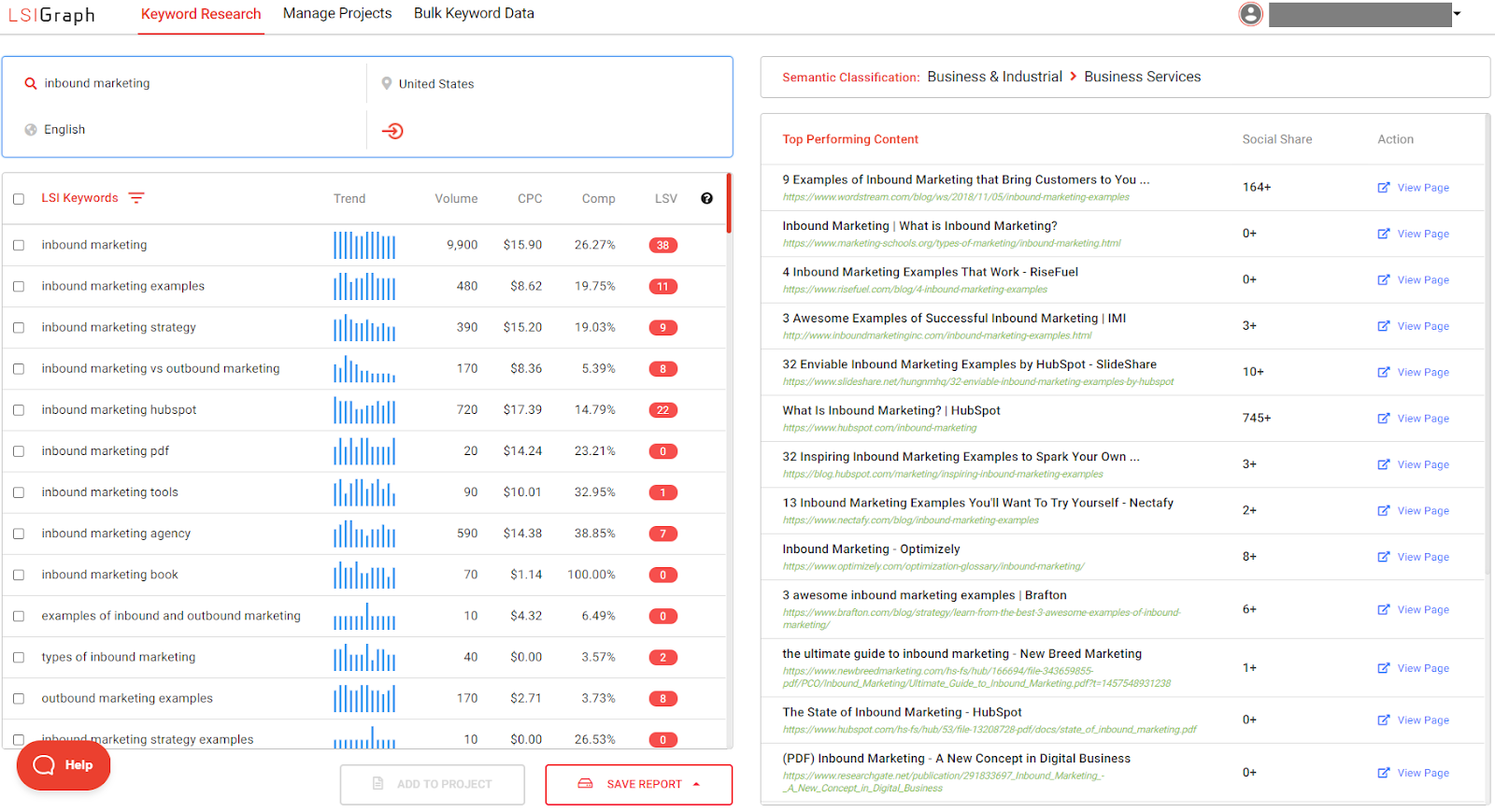Steph W. from SEOPressor


...help you check your website and tell you exactly how to rank higher?


88
score %
SEO Score

Found us from search engine?
We rank high, you can too.
SEOPressor helps you to optimize your on-page SEO for higher & improved search ranking.
By jiathong on December 29, 2020

In your quest to rank better in your niche, you may have tried targeting a specific keyword with multiple pages. It sounds like a solid strategy on paper, but you may realize that these pages are not ranking or Google is ranking the wrong page for your target keywords. This situation is called cannibalization, where you are locked in a competition with yourself.
Cannibalization in SEO happens when multiple pages are ranking for the same keyword. Search engines will try and weigh the authority of each page, and they may even not list any of them. As you will see below, however, it is quite simple to identify the issue and fix it.

Keyword cannibalization happens when several pages on your website rank for the same search terms on Google. Google will determine which page to display, and it may be the wrong one for that search query.
If you sell coats, for example, you may have several pages that target the keyword ‘women’s coats.’ If these posts display similar content, it is best to merge them into a single page. On the other hand, one article can target ‘women’s coats for winter’ and another ‘women’s coats.’
These two articles will be cannibalizing on each other’s opportunity to rank. By ranking multiple pages for the same keyword, you will be splitting links, CTR, and conversions between them.

Keyword cannibalization can be disastrous for your SEO strategy. If an undesirable page is ranking higher than a high-performing one, you lose out on conversions.
If you sell laptops, for example, a review you did years ago may rank higher than a current post. Once readers navigate to the higher-ranked page, they will find outdated information. You want your current articles to rank higher since they contain more relevant content, or you have improved on your delivery methods.
Search engines are mostly accurate, but they only work with what you give them. Google will be inclined to devalue other pages in favor of the wrong one, and this will ruin your authority. Google can also disqualify all pages by assuming that you have insufficient content.
Keyword cannibalization also dilutes your backlinks. Your internal links will be leading your audience to different pages that contain similar information instead of one authoritative page. Your backlinks will be most effective if they go to a consolidated source of information instead of sending readers to different directions.
Ranking several pages for the same keyword may seem like the path to more conversions, but it has the opposite effect. Some pages are going to perform exceptionally well, and you want to direct most of your traffic to these pages. If they rank poorly, however, you will experience lower conversion rates.
If you have created multiple pages and they are ranking poorly, you can determine if it is a result of keyword cannibalization.
Create a spreadsheet and note all of your website’s important URLs and their keywords. This process will be more straightforward with a keyword mapping tool. When running through the list, look for any double entries.
If you spot similar keyword entries, your website is likely suffering from cannibalization.
You can also use Google Search Console by navigating to ‘Performance’ and ‘Search Results.’ Create a filter for a keyword and click on ‘Pages.’ You will see all URLs that are ranking in the top few hundred positions.
Here’s an excellent guide from Jean-Christophe Chouinard that combines Python with your Google Search Console data to quickly vet out cannibalization in your website.
If you suspect some keywords of causing cannibalization, you can also do a simple search on Google.
To prevent cannibalization in your SEO, you will need better targeting strategies. Some of the tactics to use include:
You can consolidate two pages that have similar content and keywords. Search engines love in-depth and long articles, and you can adapt one material into another to create one authoritative page.
Do not forget to redirect the article you delete to the primary one so that all links go to one page.
If you’re using SEOPressor WordPress plugin, you can easily set up a 301 redirect and the canonical page. Just remember to tick on the appropriate boxes under meta.

This option is useful where you want to keep similar pages, but you want one to rank higher than the other. You can utilize canonical tags to identify the main version so that search engines rank it highly.
Canonical tags will help you to specify the current articles so that readers find relevant information. Canonicalization is most effective where the content of the two posts are diverse enough for your readers to get different information from both.
You may identify a high-performing page that is cannibalizing another post, but it ranks organically for other keywords. In this case, you want to de-optimize the first page so that it does not rank for those keywords that are causing cannibalization.
Start by removing any references to the undesirable keyword. You can also remove any internal links that lead to the undesirable post or change their destination. Be especially keen on keyword-rich links as they will attract the most traffic.
Ensure that no external inbound links lead to the undesired page, and try contacting the websites to change or swap them.

You can use 301 directs where multiple pages are ranking for similar keyword queries. Choose the best version, which is the page with the most authority for that keyword, and then use a 301 direct on the duplicate pages.
301 directs will help Google rank the most desired page for a query.
Do take note that when you 301 redirect 1 page to another, that 1 page will no longer be visible for your website visitors. Also, the longer the 301 redirect is in place, the stronger a signal this will be to Google to drop that 1 page off from the SERP, therefore de-indexing it.
This is the most extreme option, but it is necessary where a low-quality page is cannibalizing on high-performing ones. You can also do away with a page that has no value for readers in the case of outdated articles.
If there is a good amount of backlink juice on the page or it is still actively receiving visitors, it is always wiser to 301 redirect it so all the SEO benefits will be passed on to the page of your choice.
You can reconfigure the information architecture of your site to make it more SEO-friendly. Convert the most authoritative post into a pillar or landing page and include links to supporting pages.
Ideally, your site should have a landing page on the general topic, and then other pages that will touch on the subtopics. Your audience will find it easy to navigate through your site, and you will help Google to select the best page for a specific query.
Having a good website structure will not only solve your cannibalization problem, it will also improve your SEO much much more.
But, restructuring your site can be a big, complex, and even expensive project. So think twice and do a lot of preparation before you decide to jump into that.

This is a favorable option where you want to keep certain pages, but you don’t want them to appear on search results. These pages may have useful information for readers, and an example of this are category pages.
Readers can still access no-indexed pages, but the post will not cannibalize on your traffic.
Again, if you’re a user of SEOPressor plugin, you can easily choose to make your page no-index just by ticking the box under the meta tab.
The best strategy to avoid cannibalization in SEO is keyword mapping. To start, make a list of all the keywords that you want your business to rank for. You can get new ideas from your competitors’ search results.
To get started with keyword mapping, you should have a spreadsheet ready, then you’ll need these fields. The keyword, search volume, and difficulty, the last one can be different from one tool to another so if you want more accuracy you can invest the time into grabbing the data from multiple tools.
You should also group the keywords that are closely related to each other and scrutinize if there’s any chance of them cannibalizing each other.
For this, you can use a tool like LSIGraph or whichever that you’re used to to predict the performance of every keyword and filter the ones you will be using. You want to use your high-priority keywords to de-optimize already existing pages and new pages.

You can also tackle cannibalization by addressing the intent of customers. If customers search for ‘women’s coats,’ for example, they may want to see the trending women’s coats in the current season, or they may be looking for tips on how to style them.
Conduct a lot of competitor research in order to correctly target the user intent behind each keyword.
Keyword cannibalization is especially common in established sites that have pages and pages of content. If you are starting in digital marketing, you want to avoid this pitfall by being strategic about your SEO.
The steps above will prevent you from competing with yourself, and you will understand Google’s ‘language’ better.
Updated: 13 July 2025


Save thousands of dollars (it’s 100x cheaper)

Zero risk of Google penalty (it’s Google-approved)

Boost your rankings (proven by case studies)
Rank High With This Link Strategy
Precise, Simplified, Fast Internal Linking.
